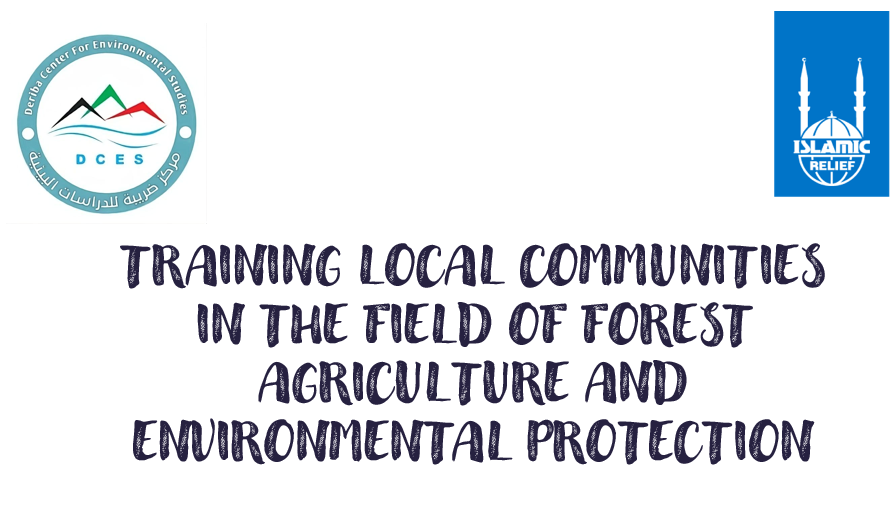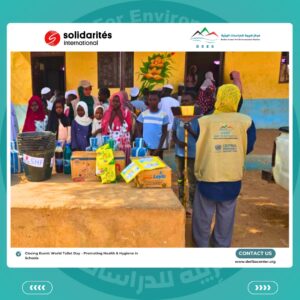DCES in cooperation with the Islamic Relief Organization engaged in training local communities and raising their ability to earn a living, The center trained 322 participants. The overall objective of the training was to strengthen and raising the capabilities of local communities in the field of forest agriculture and environmental protection.
The participants were trained on the growth and development of forest agriculture, environmental protection, the benefits of afforestation, how to make nurseries, the causes of the deterioration of forest areas, and the role of women in preserving the environment.
The targeted villages were covered by one day per village. The chart shows the percentage of the women and men from the participants in each village.

The percentage of women (Left) and men (Right) among the participants in each village
Objectives
- Activating the role of women in active participation in protecting the environment and managing natural resources.
- Developing and strengthening the capabilities and skills of young farmers, native administrations, and livelihood groups.
- Knowing the causes of the decline in agricultural and forestry production and productivity and its impact on food security.
- Training of trainers from the Livelihood groups to training targeted communities in selected areas of Central Darfur State.
- Background knowledge of forest degradation as a problem facing local communities, especially small farmers, youth, women, native Administrations, and livelihood groups.
- Securing food by improving livelihoods and increasing the capabilities of local communities to withstand the circumstances surrounding them, through sustainable management and utilization of natural resources.
- How to restore vegetation in degraded areas and use available techniques that have been approved and successfully tested.
- Attention to techniques that can be adopted by small-scale farmers, men, women, youth, native administrations, and livelihood groups.
- Encouraging the use of some intermediate technologies, such as animal-drawn agricultural machinery.
Methodology
The training program aims to deliver the knowledge needed to understand the essence of forest farming and its various practices. This was done through extensive training sessions with the targeted participants.
Recommendations
- Providing improved seeds to increase the production and productivity.
- Providing agricultural inputs and equipment.
- Providing security as essential element for the local communities to practice their acquired knowledge with ease.
- Coordinating with livestock owners to determine appropriate schedule for the release of their livestock for grazing.
Photo Gallery







